commercial solar roofing
Rooftops are an excellent place to install solar systems as they are often unused and unobstructed spaces. Rooftop solar (or photovoltaic - PV) systems are becoming increasingly popular due to technological improvements and the demand for alternative energy sources due to rising costs and environmental concerns.
Whether you're breaking ground on a new building or sustainably renovating an existing property, we'll work alongside you to deliver a durable, long-lasting roof that meets your specific energy needs
For commercial projects, we install the same tiles as our residential solar roofs, but can develop alternative installation systems to achieve the architectural aesthetic you want.
What is photovoltaic?
Photovoltaic (PV) solar panels are designed to generate electricity through exposure to the sun's radiant energy. This type of electricity is considered "free" electricity because no fuel is used to produce it. The silicon wafer semiconductor is exposed to the sun's radiant energy and produces a small electric current. In order to generate a large enough amount of energy, these groups of semiconductors are connected in a panel. These panels are arranged in arrays so that the wattage produced is used to run equipment and other devices.
The need for solar panels for commercial buildings
Your reasons for installing commercial solar roofing.
Commercial solar roofing made today is much more efficient than what was made just a few years ago. The cost of solar panels has fallen dramatically in the last few decades. commercial solar roofing technology is constantly improving, making it an increasingly attractive investment.
The initial investment is the only cost. Solar panels have a relatively long lifespan, so you can expect them to last for decades. After installation, all the energy you get from them is free of charge.
Commercial solar roofing can increase the value of your commercial building. If you are planning to sell your commercial space, installing solar panels will make your building more attractive to potential buyers who are looking for a property with sustainable features.
Commercial solar roofing can help your commercial building achieve LEED certification, which stands for Leadership in Energy and Environmental Design and is a certification for buildings that meet specific sustainability criteria. Solar panels are one of the elements that can help your building qualify.
Take advantage of government incentives. The federal government offers tax credits to businesses that install solar panels. In addition, many states offer additional incentives, such as grants or rebates, to help offset the cost of installation.
The ideal commercial solar roofing customer
Roof Features: Total roof area of 25,000 square feet or more; large, flat roof
Commercial buildings: including manufacturing facilities, office buildings, storage centres, hospitals, assisted living centres, real estate investment trusts, etc.
Electricity demand: owner-occupied or single-tenant buildings operating during peak demand hours; large stable loads such as HVAC systems
Which commercial solar roofing is most suitable for solar panels?
The most suitable type of roof for solar panels is a flat roof. This is because the solar panel system needs to be mounted on the roof and a flat surface will provide the best stability for the system. However, if your commercial building has a sloping or pitched roof, you can still install solar panels with proper support.
The compatibility of commercial roofs with solar panels depends primarily on
Material: Metal roofs are the best type of roof for solar panels as they provide a stable and durable surface to mount the system on. Metal roofs also don't degrade in the sun like other roofing materials, so you don't have to worry about the panels becoming less effective over time.
Age: Solar panel systems can be installed on both old and new roofs. However, if the roof starts to show signs of ageing before the solar panels are installed, it is vital that the roof is repaired or replaced. This is because solar panel systems add weight to the roof and can cause further damage if the roof is in poor condition.
Orientation: The best orientation for solar panels is towards the south, as this will maximise the amount of sunlight received by the panels. However, if your roof does not have a south-facing orientation, you can still install solar panels and benefit from electricity savings.
Shade: Shade is one of the biggest factors affecting the performance of solar panels. If your roof has a lot of shade from nearby trees or other buildings, the panels will not get enough sunlight to generate electricity.
Size: The number of solar panels that can be mounted on a roof depends on the size of the roof. If you have a small roof, you may only be able to install a few panels. However, if you have a large roof, you can install dozens of panels and generate a lot of electricity.
Slope: Generally speaking, solar roofing is done on roofs with a slope of between 15 and 60 degrees. However, a certified roofing contractor will be able to install solar panels on most types of roofs.
Advantages and disadvantages of commercial solar panels
As with any other product, there are pros and cons to solar panels for commercial buildings.
Benefits of commercial solar roofing
Installing solar panels is a great way to reduce your electricity bills. They will pay for themselves in the long run, so it makes sense to invest in them if you plan to stay in your company office for a while. Solar is also a renewable energy source, which means it will always have a supply - unlike fossil fuels such as coal or oil which eventually run out when they are used up. This makes solar power both sustainable and cost effective!
Disadvantages of commercial solar roofing
While solar power can save you money on your electricity bill, it will take time and effort to get started with this type of system before you see any benefits from it. It is also not ideal for people living in areas with few sunny days per year, as this type of system relies heavily on sunlight as its main source of electricity generation (rather than burning wood).
Potential savings when using commercial solar roofing.
Federal cash grants or investment tax credits
Local and state rebates available in some markets
MACRS tax credits (Modified Accelerated Cost Recovery System)
REC's/SREC's/AEC's (Renewable Energy Certificates/Solar Renewable Energy Certificates/Alternative Energy Certificates) This is the process of receiving certificates to create your own electricity rather than drawing it from the utility
Federal tax incentives: regional electricity companies may offer rebates for PV systems
For specific state incentives: www.dsireusa.org
Under the right conditions, your company can achieve a return on investment in a PV system in as little as one year, with an average payback of 4-6 years. CentiMark can work with your organisation to help you determine if a PV system is a viable route. It's easy to find the answer, just contact us for a free PV feasibility study.
Design considerations for commercial solar roofing
Solar roofs have an extremely low structural height and can be stylishly integrated into any building with a roof pitch of at least 3:12. When planning a new structure, certain design elements should be considered to make the installation of the roof easier and more cost effective.
No limitations on roof or system size - the design can be scaled to fit any commercial building from small offices to large institutional campuses. commercial solar roofing is compatible with all solar electronics and battery suppliers, offering the ability to work with your preferred supplier.
commercial solar roofing installation
Commercial flat roof solar panel systems are designed for government and industrial flat roof buildings. We offer only the best solar systems from reputable manufacturers to ensure quality customer satisfaction. Some of the more popular roof mounting options for flat roof solar PV applications are upward tilt penetrations, self-ballasted and recessed installations.
FAQ
How much maintenance do I have to do on my solar panel?
Solar panels require little maintenance. Solar panels last at least 25 years, while the inverter lasts 10-12 years. This inverter will therefore have to be replaced halfway through its use. It is advisable to clean the solar panels once in a while, so that optimal solar energy can be generated.
If I have solar panels installed, can I also use them in the winter?
Solar panels use the light from the sun to produce electricity. Every day it gets light and the sun shines every now and then, so your solar panels also provide energy in the autumn and winter period. In these months, less is generated compared to the spring and summer months.
Is it best for me to put solar panels or solar collectors on my roof?
The main difference between solar panels and solar collectors is that solar panels are used to generate electricity using the sun. A solar collector captures the heat from the sun and transfers this heat via a pipe system to a solar boiler. It just depends on what you would like to make more sustainable, the electricity or hot water. You can of course also choose both options.
Does it still make sense to take solar panels now that the netting may not take place and something will take its place?
It remains useful to have solar panels installed, despite the fact that the netting scheme changes. If the solar panels are purchased before 2023, you will benefit from the maximum netting percentage (100%) until 2031. After 2023, this percentage will decrease, but it will still be attractive to install solar panels on your roof. This calculation has been worked out here: Solar panels: less netting, yet attractive | Environment Central
commercial solar roofing
A variety of commercial and industrial rooftop projects have been completed. To see a full showcase of commercial projects, visit our gallery.
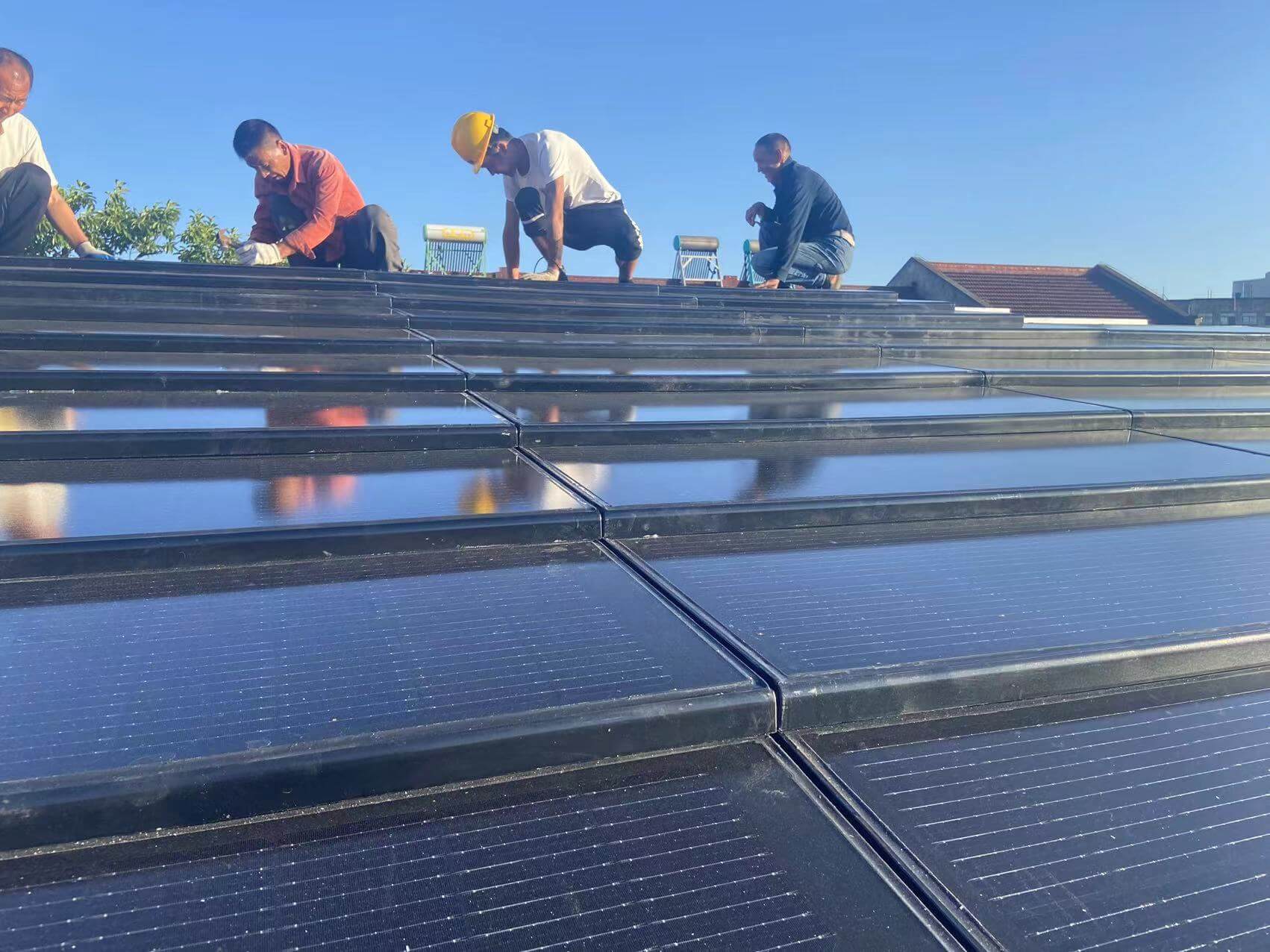
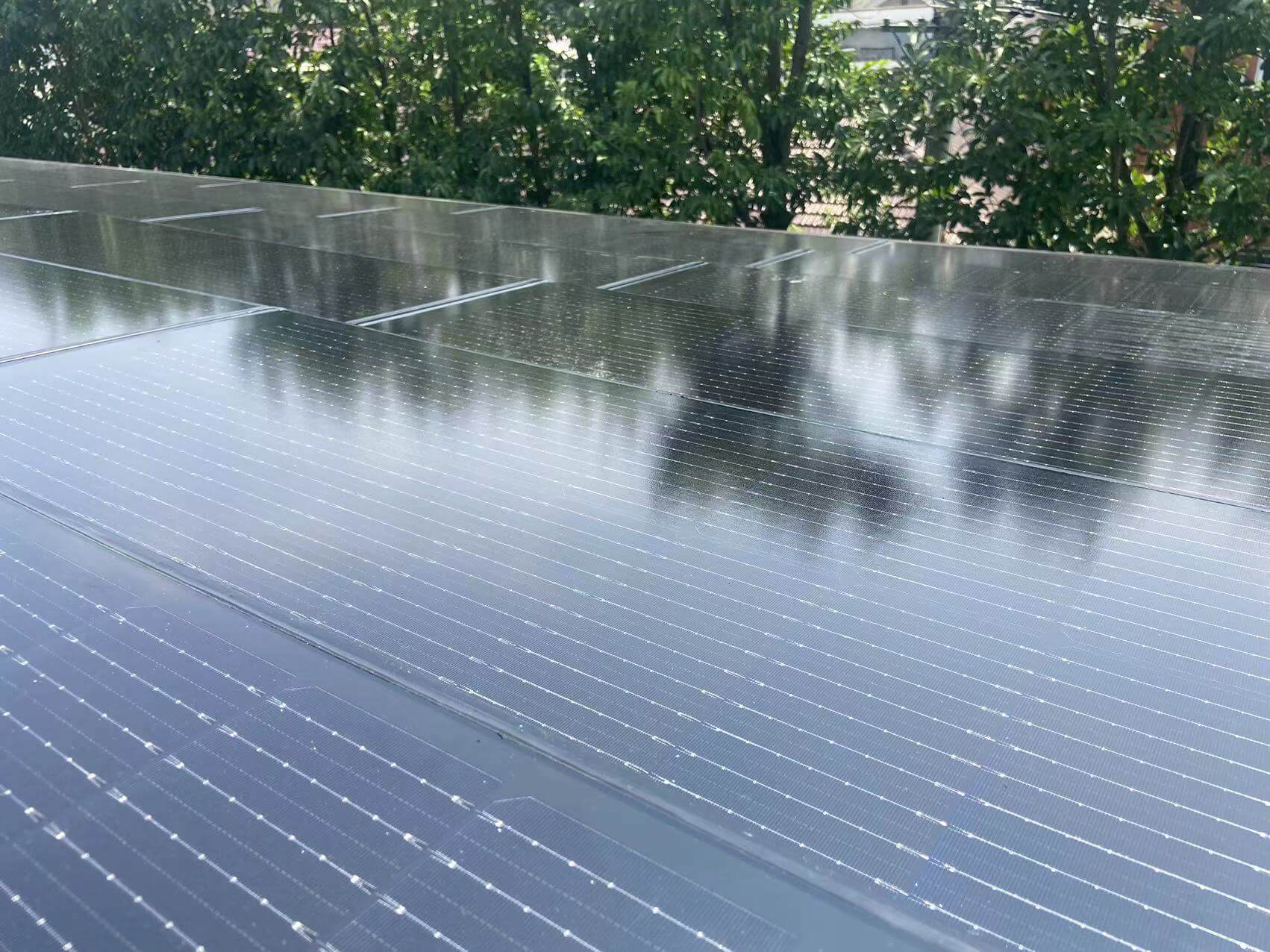
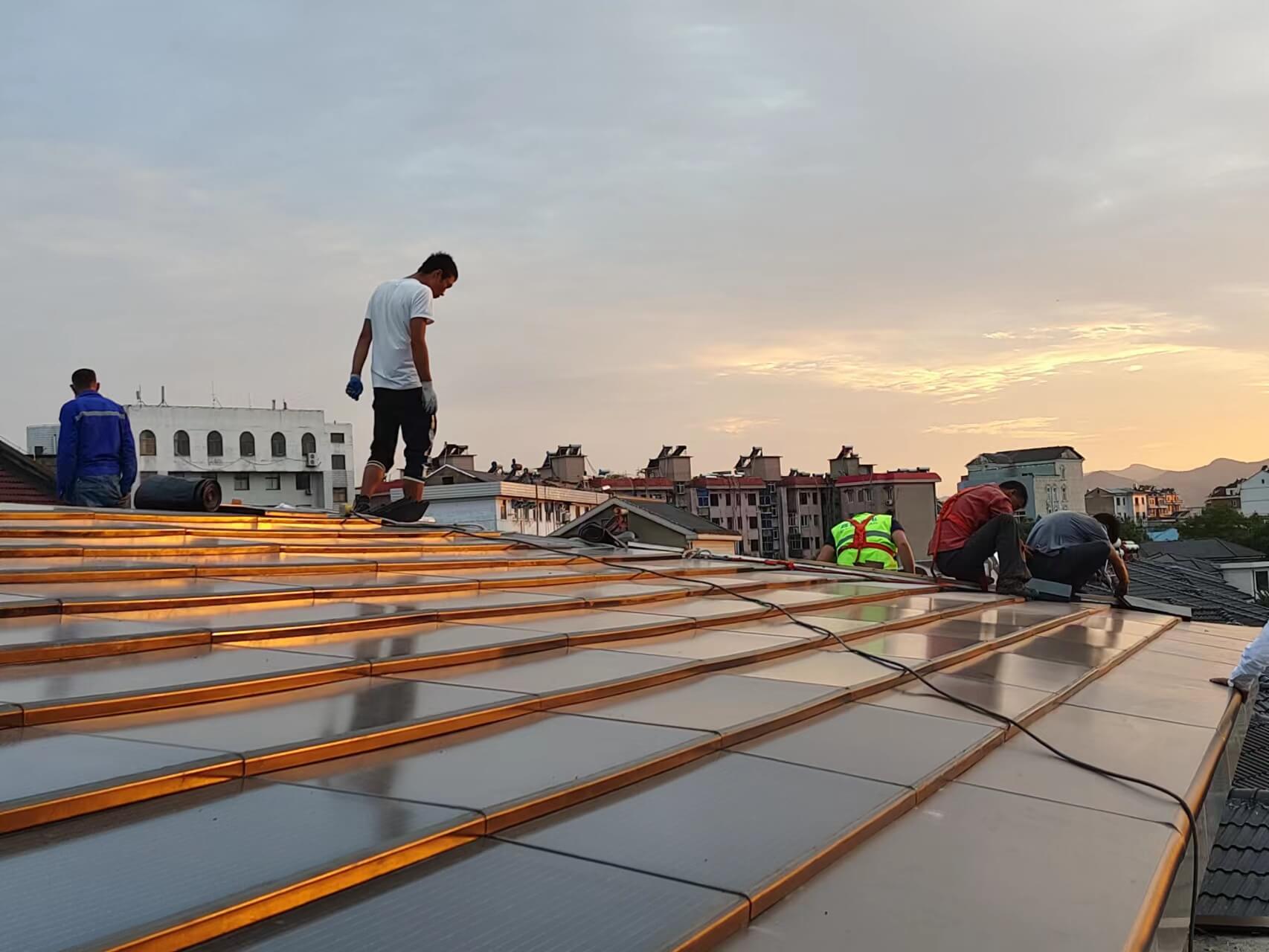
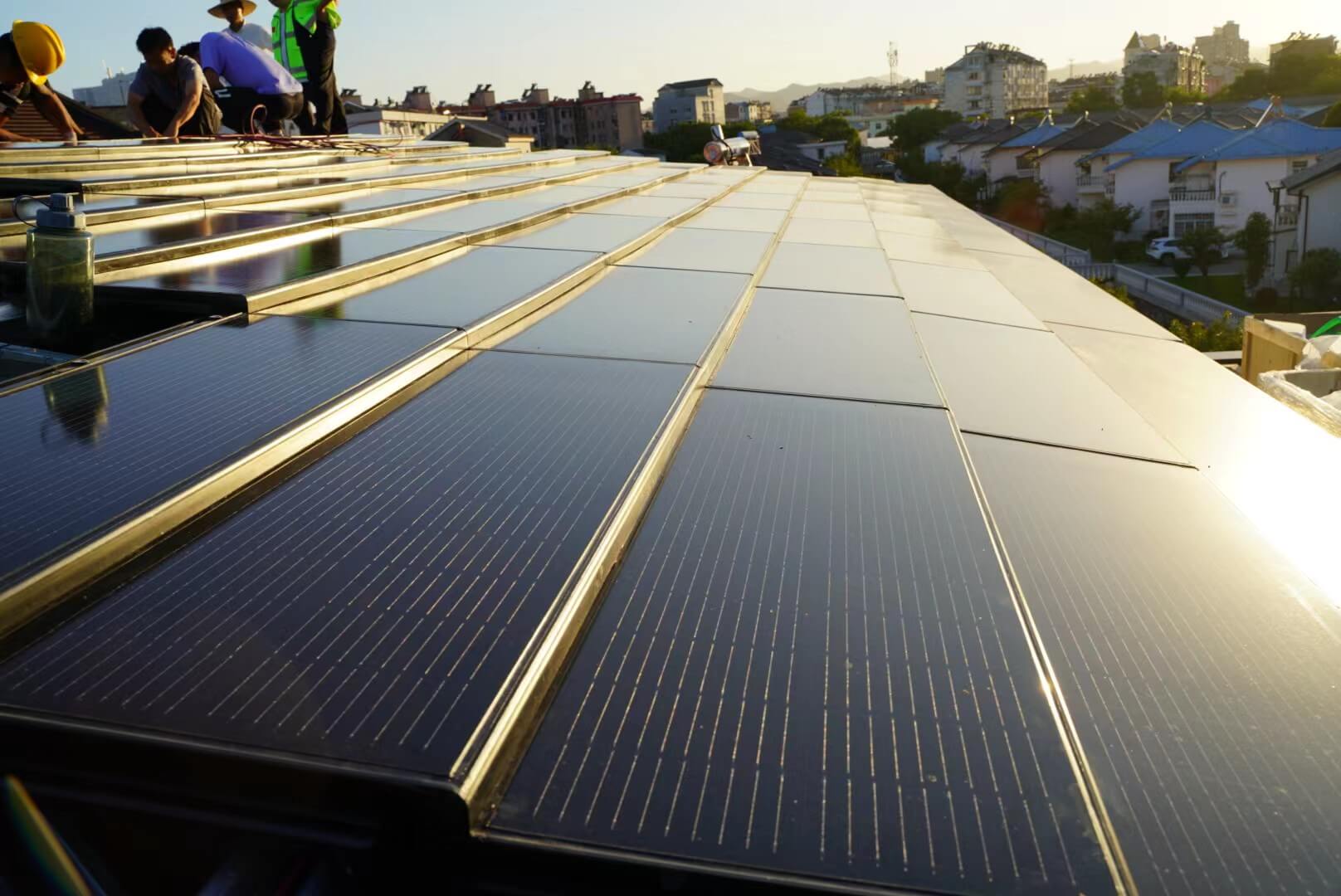
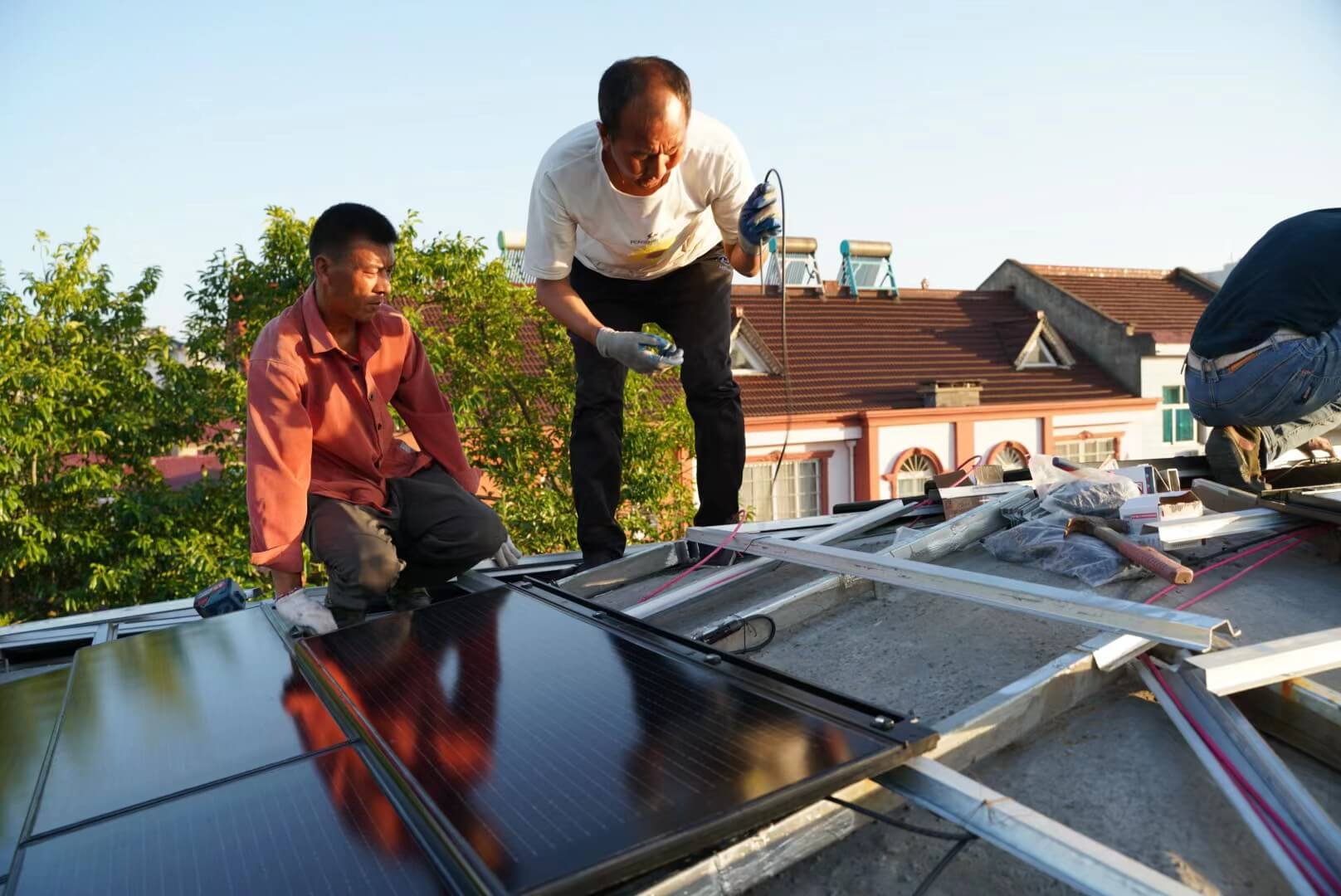
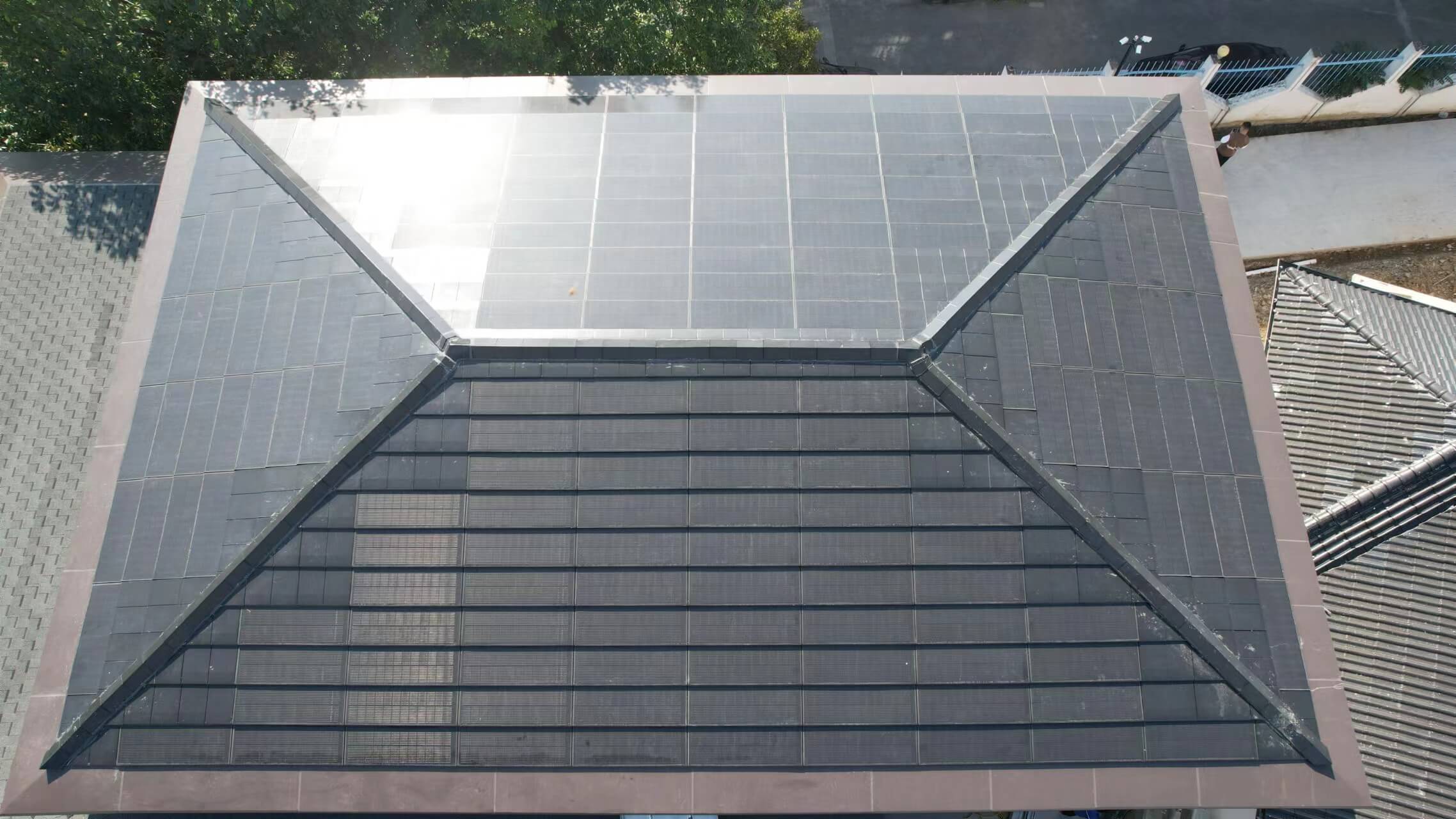
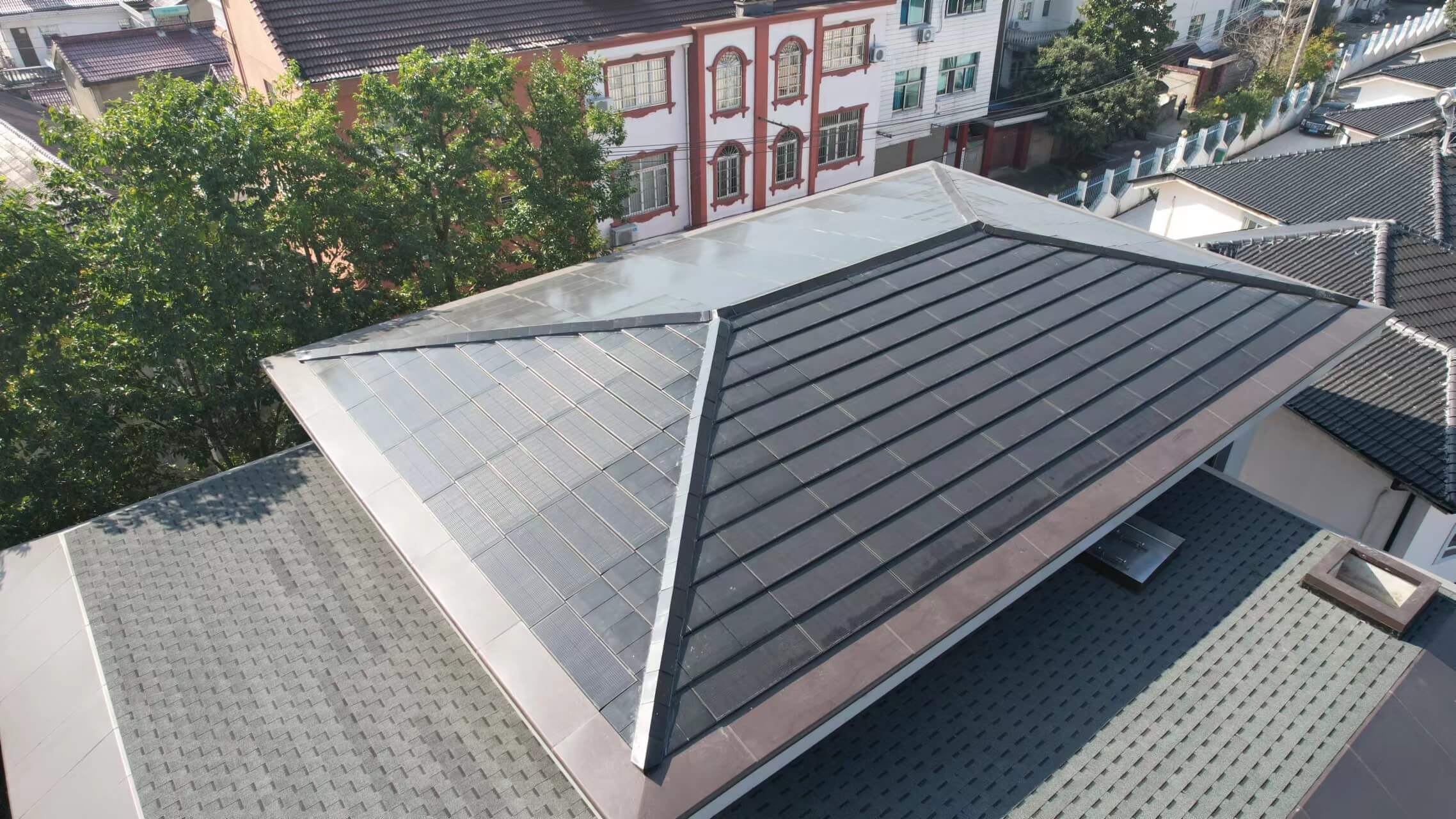
With over 15 years of roofing experience, GAIN SOLARE offers commercial solar roofing advice and guidance for any photovoltaic system, daylighting and green roof systems. Our solar services - including thorough roof inspections, emergency services and long-term maintenance - can be integrated into your renewable energy project. This is the peace of mind behind your investment. Our experts will help you find the right partner that best suits your solar roof construction goals and ensure the success of your project.
Our extensive range of services ensures that you get the right commercial solar roofing solution the first time. We will help you save time and money by helping you determine exactly what you need to maximise the life of your roof. Each project is customised to your needs, with excellence, flexibility and integrity as our guide. During the design phase, we work with you to understand your design objectives and energy offset requirements. Together with our certified installation partners, we are committed to achieving excellence in installation for each project. To get started, please complete the form below and a member of our team will contact you. If you are seeking a quote for commercial solar roofing, please click here to complete your request.
You can speak to an experienced, knowledgeable and friendly representative with a simple phone call. Email us , and someone will be happy to help you with all aspects of your flat roof commercial building solar system design, system costs and rebate incentives.
Picture Library
Related Information
Contact Us